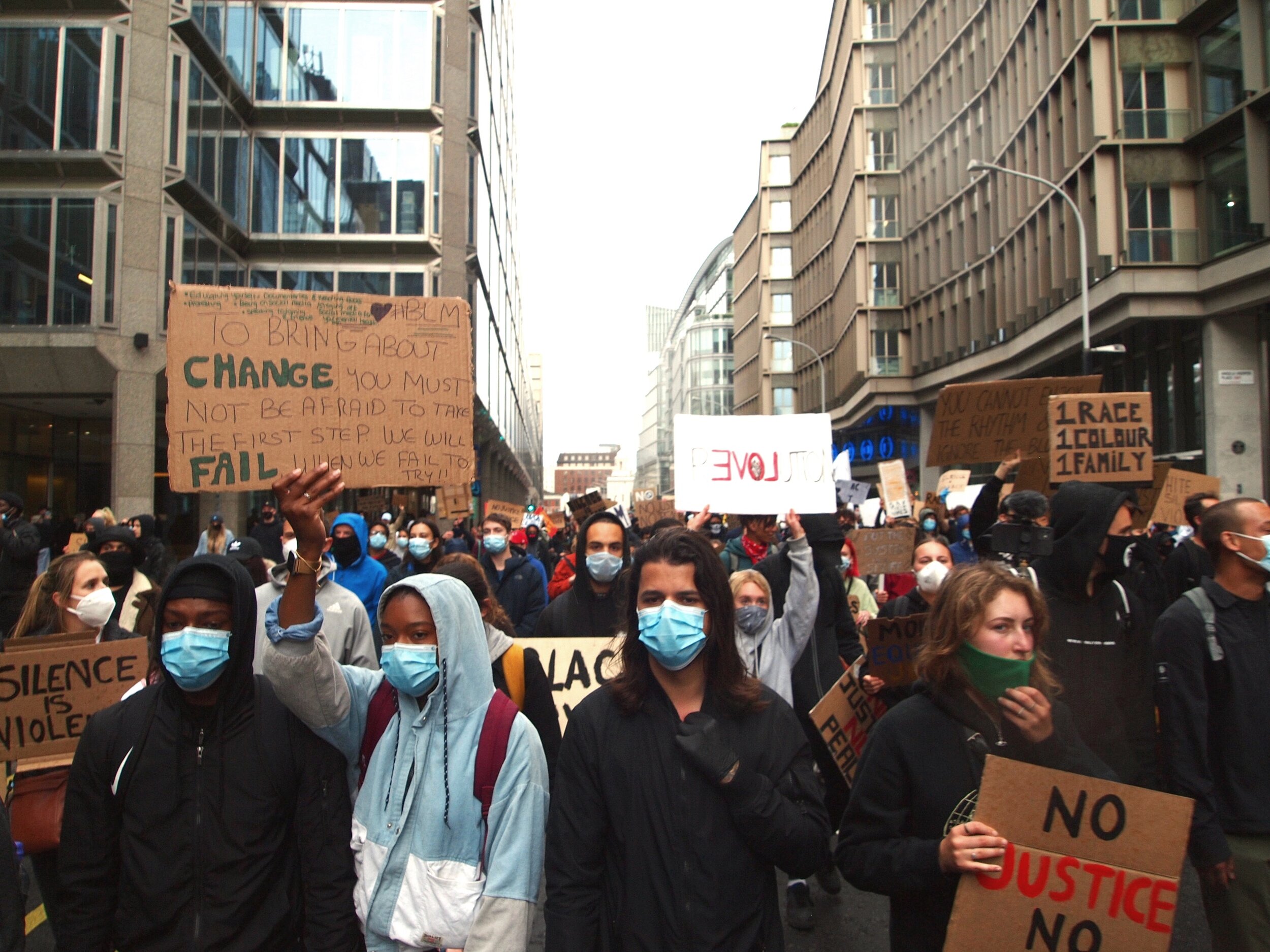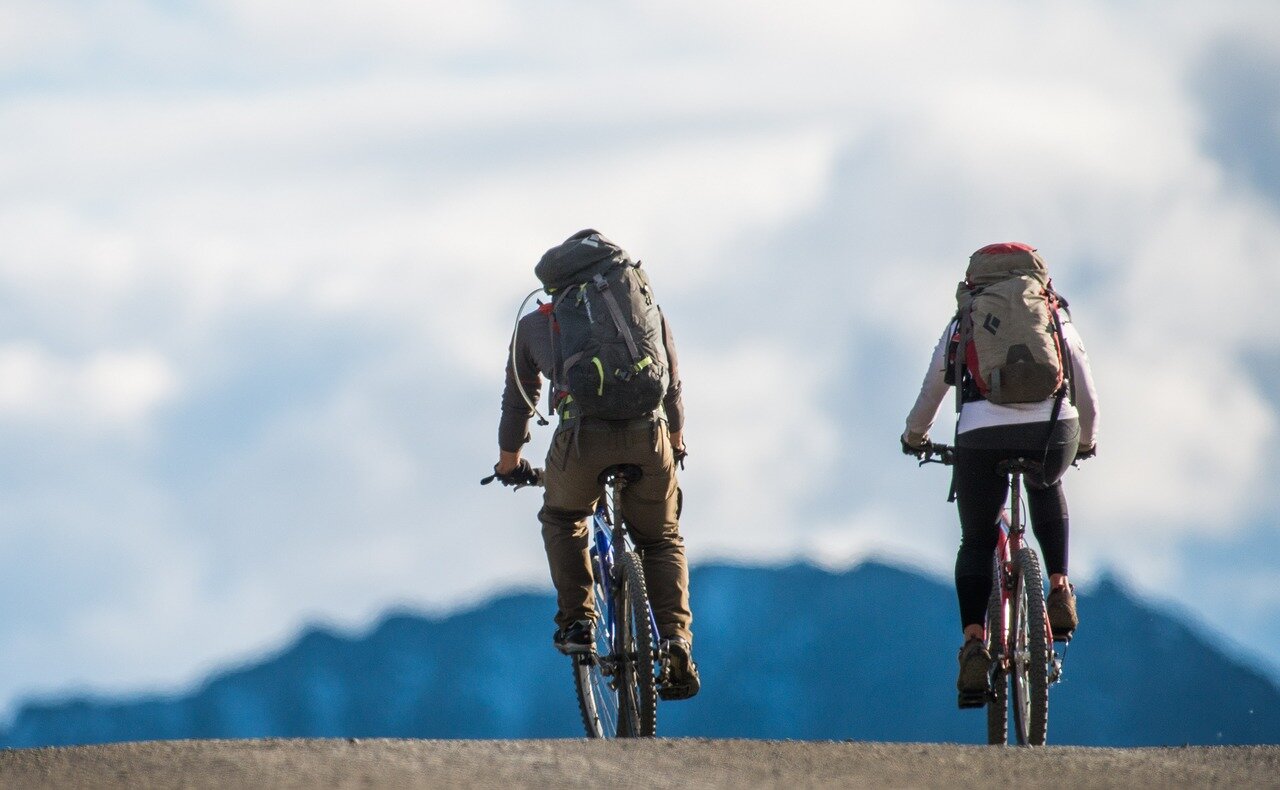COVID-19 has disrupted virtually all facets of what used to be considered “normal.” Over a year into the pandemic, millions cannot safely work in person, children face difficulties with online education and governments struggle to develop and administer vaccines.
An empty check-in area at Gatwick Airport near London. Mark Hodson Photos. CC BY 2.0.
One area significantly impacted by COVID-19 is the sustainable travel industry. According to the International Civil Aviation Organization, air travel dropped by 60% in 2020 compared to 2019, with a $370 billion year-on-year loss worldwide.
But a broad array of sustainable and social action travel agencies, organizations which uplift the communities they bring groups of travelers to, have worked tirelessly to continue bolstering at-risk communities while weathering the many challenges of the pandemic.
Pivoting for a World Without Travel
As COVID-19 began to spread and governments imposed lockdown measures, travel agencies focused on sustainability and social action had to work quickly to pivot toward operating in an environment where travel was impossible.
“At first it was a ‘wait-and-see’ thing because it was uncertain how long it was going to last or how widespread it would be,” said Lindsay Booth, CEO of Off Season Adventures, an agency providing an immersive experience to empower travelers and destinations. “We were lucky we didn’t have anyone traveling when everything shut down … But obviously, everything got worse, so we touched base with our partners to make sure they were safe and see what their current situation was like. And then we talked to our travelers about postponing their trips.”
While some agencies initially canceled trips on a week-by-week basis, others, like G Adventures, a leading agency for small-group adventure travel, canceled or postponed all travel through the end of April 2020 without hesitation.
“We made the decision mid-March that we’re canceling until the end of April [because] there’s no reason to keep these tours if we don’t know,” said Casandra Rotunno, a consumer marketing specialist at G Adventures. “From there we kept it going on a monthly basis of canceling tours.”
Catarina Rivera, co-founder of ExplorEquity, an agency supporting local communities and connecting travelers to social justice issues, explained how shortly after the onset of the pandemic, her agency shifted its focus to creating virtual spaces for travelers to connect and talk about the recent loss of the ability to travel.
“We hosted [a series called] ‘Travel Lovers Happy Hour,’ where we invited people to come and share together,” Rivera said. “We invited a mental health expert to give tips at each one for how [travelers] could process what was going on and how they could approach planning for the future. [The expert] would respond directly to the sentiments people were sharing.”
Rivera also noted that ExplorEquity held a panel with the company’s partners in Brazil and Honduras, two countries where trips were canceled, to talk about how the countries were dealing with the uncertainty of the pandemic and how their travel partners’ communities were doing.
ExplorEquity was not the only agency to shift to completely virtual offerings. Beginning in April 2020, G Adventures launched virtual tours hosted by guides around the globe in countries like Italy, Costa Rica, Thailand and Japan.
“[The tours are] an hour on Zoom hosted by one of our [guides] and they remake a complete tour through Zoom and Google Earth and they include their own photos, they give you a welcome meeting and they hit all of the stops on the way—they condense this seven- to 10-day trip within an hour,” Rotunno explained. “And it's great because it allows our [guides] to work while they aren’t able to work within their country.”
Occasional Opportunities for Travel
Bus passengers in South Africa being screened before boarding. GovernmentZA. CC BY-ND 2.0.
As the pandemic continued into the summer, the spread of COVID-19 was uneven. While the United States maintained high case numbers, Europe saw significant declines, presenting opportunities for limited travel on the continent.
James Willcox, co-founder of Untamed Borders, a United Kingdom-based agency partnering with local communities in inaccessible parts of the world, explained how after the U.K. began permitting limited international travel without a mandatory quarantine, the agency was able to look into regions it had previously worked with to offer some in-person travel.
“There was a time where the U.K. had this list of countries where you didn’t have to quarantine upon return, and Turkey was one such country, and we [already] work in Syria, Iran and in Kurdish regions, so we [discussed] putting on a trip to Turkey in September,” Willcox said. “There’s a couple of areas which are stable where the [government] has some travel warnings against. Not that that’s what we look for, but [Turkey] looks like somewhere we could add value to and ensure people have a good experience where they can travel safely.”
Adventures also hosted several in-person experiences beginning in the summer when able to do so safely. The agency implemented new rebooking and cancellation policies to allow for greater flexibility given the pandemic’s uncertainty.
“We took our time in deciding to move forward with that,” Rotunno said, “and in the summer and fall Europe was able to travel within Europe. We had sailing trips for Europeans [with] everyone wearing masks, there’s extreme sanitation, the groups are smaller than usual, and it's all private transport as well. And then Costa Rica started to open up to travelers, then Tanzania and Egypt. So now it's dependent on if travelers are able to go.”
Focusing on Social Consciousness When It's Needed Most
Black Lives Matter demonstrators in London. Livvy Adjei. CC BY-NC-SA 2.0.
At the core of each of these agencies is a mission rooted in sustainability and social action. While COVID-19 has for the most part disrupted the in-person travel component of these agencies, they have continued to uplift and support the communities they work with.
“There’s something [Untamed Borders is] trying to push at the moment which is that travel has always been a privilege, and in these days you should kind of be appreciative and have some thought about it … consider where you’re going, consider what the impact is and the benefits are,” Willcox said.
Untamed Borders has followed suit through a number of projects it has been able to hold throughout the pandemic. In Afghanistan, the agency helped to organize the Marathon of Afghanistan, and started a tree-planting initiative to help combat deforestation.
ExplorEquity continues to engage with its travelers and the communities it supports through a shift in the online content produced. Rivera discussed how the agency’s social media platforms have been used to shed light on issues including racism in travel, climate change, equity issues for Indigenous communities and decolonization.
“Instead of talking on Instagram and Facebook about our upcoming trips, we’ve been talking about equity issues and highlighting different themes,” Rivera explained. “We’ve seen a lot of engagement and a lot of learning. People who are connected to us on social media have been commenting and sharing the content, and I think they’ve been enthusiastic about being exposed to new concepts or things they weren’t aware of. Even though we can’t travel the way we used to, I still think it's important to create better travelers.”
Promoting social consciousness within the travel community is not limited to sustainable travel agencies. Planeterra, a community tourism nonprofit seeking to reduce global poverty, has worked throughout the pandemic to support many of the same communities the sustainable travel industry works with.
“We looked at what our partners needed and what they’ve been requesting, what support they need that we would normally give in person,” said Rhea Simms, a program manager at Planeterra. “We built an online learning hub … for no budget. Our team compiled a hundred years of [combined] experience on what are the key opportunities, challenges and instructions we bring a community through when we launch and start a tour.”
Simms discussed how these virtual webinars and trainings have served as a way to work directly with partners around the globe, and noted how the pandemic has given the organization the opportunity to reevaluate its approach to volunteers.
“Planeterra’s never had the time or the right projects for volunteers to work with our partners, but having the time now, we’ve got volunteers working with us all around the world,” Simms said. “One just finished designing an e-cookbook for our partner in Jordan … We’re just completing a project with the Canadian High Commission in Sri Lanka, where we got funding from a partner we have there … It's a handicraft shop where over a hundred women from various backgrounds create beautiful handmade goods … and we’re finishing a project in Peru … doing some technical training with communities hoping to launch a tourism program in the coming years.”
Planeterra and G Adventures had been partners before the pandemic, a relationship made stronger as the two have collaborated on recent initiatives. Rotunno said G Adventures worked with Planeterra to raise over $100,000 at the beginning of the pandemic to fund some projects which were impacted by the inability to travel abroad.
“This time has allowed us to reflect on what works best, what has created the most impact … and begin to create the strategy of how we scale this and do it bigger, with the right people, with different organizations,” Simms explained. “This is a huge opportunity for us to facilitate this space for socially minded community enterprises that are trying to empower women or break down barriers for at-risk youth or celebrate Indigenous culture.”
Looking Toward a Post-Pandemic World
The sun setting in Samara, Costa Rica. John. CC BY-SA 2.0.
While there is no concrete timeline for the formal end of the pandemic and the beginning of a “new normal,” the distribution of 10 different vaccines worldwide as of March 17 signals the pandemic’s end will eventually become a reality. As countries receive and distribute COVID-19 vaccines to their citizens, international travel is expected to return.
But just because travel will be possible does not mean it will look the same as it did in the pre-COVID era. ExplorEquity ceased all group travel throughout the pandemic, a change made permanent going forward.
“We are shifting entirely away from group travel, so we’re not going to be offering those kinds of trips anymore,” Rivera said, noting the agency would be pivoting to an online store in March 2021. “What we’re going to be offering is [locally made] products as well as virtual experiences … The two experiences we’re starting with are both live, so you can still have the magic of a travel moment, creating a memory in a community with other people, through these experiences in a different way. And the benefit is that local communities can still earn income from this type of experience without receiving travelers in person.”
Other agencies are working to schedule prospective trips in 2021 and beyond, anticipating possible delays in the distribution of the COVID-19 vaccine. Off Season Adventures has begun planning new trips, taking into account the Adventure Travel Trade Association’s guidelines and safety measures from the World Health Organization and the Centers for Disease Control and Prevention.
“We have people planning to travel in June of this year, and we’re still keeping that open because we’re really still not sure what’s going to happen,” Booth said. “They’re planning to go to Tunisia. Tunisia has been closed to Americans for most of this, so we’ll just have to see.”
Given how far in advance most of its offerings need to be planned, Off Season Adventures is also working on coordinating with travelers who reach out to them to plan trips to Asia and Africa in 2022 and 2023.
Every agency interviewed expressed optimism for the future. While travel has been a temporary casualty of COVID-19, it has also brought folks together around the issues of sustainability, social consciousness and justice. The unique ways in which every agency pivoted to continue serving communities around the world show how versatile this industry is, and how vital the cause of uplifting marginalized communities remains today.
Jacob Sutherland
Jacob is a recent graduate from the University of California San Diego where he majored in Political Science and minored in Spanish Language Studies. He previously served as the News Editor for The UCSD Guardian, and hopes to shed light on social justice issues in his work.


























